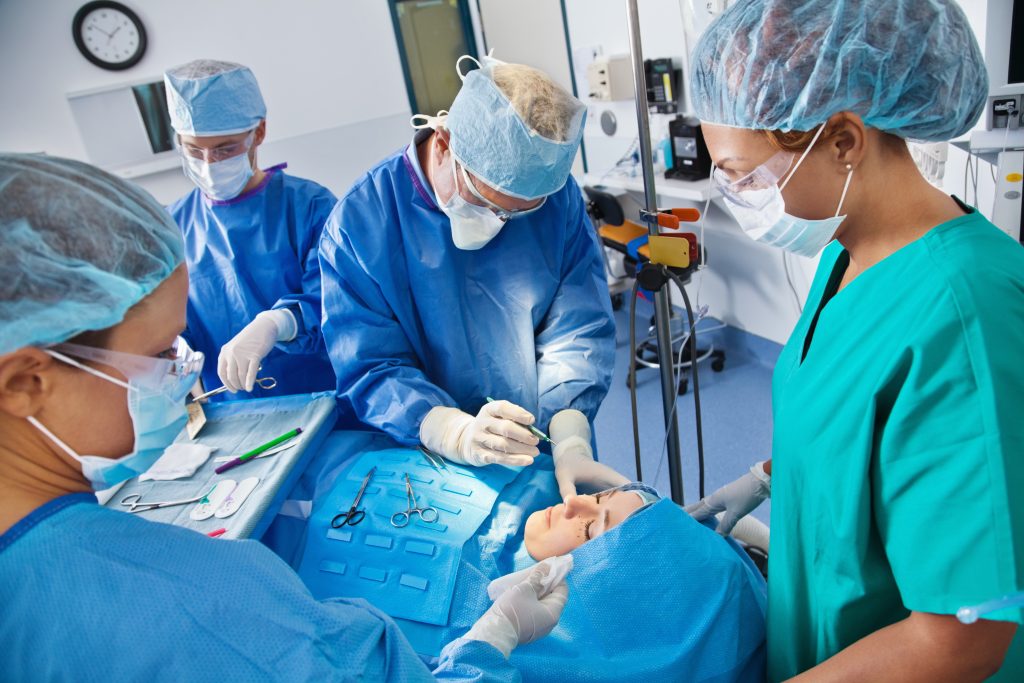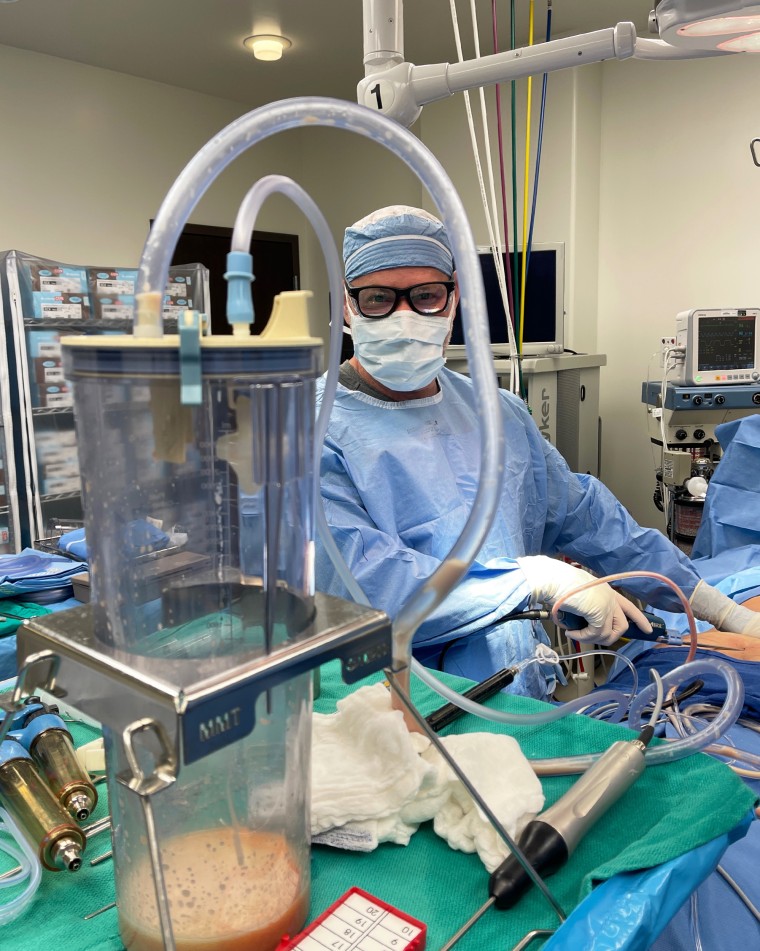Investigating the Emotional and Social Factors That Drive People to Consider Cosmetic Surgery as a Means of Enhancement
The choice to seek cosmetic surgical treatment typically prolongs past simple aesthetics, intertwining with emotional and social characteristics that merit thorough examination. Elements such as self-confidence, pervasive social beauty criteria, and the prevalent impact of social media sites merge to shape specific inspirations for surgical improvement. As these influences come to be increasingly prominent, recognizing the underlying emotional and social contexts is necessary. What remains to be checked out is the profound effect these aspects have not only on personal identity but also on broader societal standards and values bordering charm and acceptance.
The Role of Self-Esteem
Self-confidence substantially influences a person's decision to pursue cosmetic surgical treatment. People with low self-esteem often regard themselves in an adverse light, causing feelings of inadequacy concerning their physical look. This adverse self-perception can drive them to look for medical interventions as an approach of boosting their self-image. The need for enhancement in one's appearance is often connected to an idea that such changes will raise their overall self-respect and confidence.

Ultimately, the role of self-confidence in the decision-making procedure concerning cosmetic surgical procedure highlights the intricate interaction in between body picture, individual contentment, and psychological health and wellness. Understanding this partnership is crucial for health care experts to ensure that people are making informed decisions rooted in realistic expectations and psychological health.
Societal Elegance Standards
Influenced by pervasive media portrayals and social stories, social appeal requirements play a critical duty in shaping people' understandings of their own bodies. These standards are frequently characterized by an idealized form of beauty that emphasizes characteristics such as youthfulness, slimness, and symmetry. As these perfects are perpetuated through different channels, consisting of television, marketing, and film, people regularly internalize these messages, resulting in dissatisfaction with their natural look.
The implications of these social norms extend past visual choices; they can impact self-confidence, mental health and wellness, and social partnerships. Individuals that perceive themselves as disappointing these standards may experience feelings of inadequacy, motivating a need for plastic surgery as a way of achieving social approval. This pursuit is typically fueled by the idea that satisfying these perfects will boost not just physical appearance however also social standing and personal satisfaction.

Impact of Social Network
The impact of social beauty requirements is more amplified by the rise of social media sites platforms, where curated pictures and idyllic depictions of charm are common. Users are frequently exposed to filtered and edited photos, which commonly portray unattainable physical features. This direct exposure cultivates a society of contrast, leading people to evaluate their own look versus these usually impractical standards.
Social network influencers and celebs often promote aesthetic procedures, stabilizing the concept that medical improvements are a viable ways for achieving societal suitables (plastic surgery rancho cucamonga). The visibility of these enhancements can produce a perception that going through cosmetic surgical procedure is a standard practice, consequently influencing individuals to take into consideration comparable interventions as a pathway to boosted self-confidence and social acceptance
In addition, the interactive nature of social networks permits instant feedback through likes and remarks, even more reinforcing the desire to adapt preferred beauty requirements. Such communications can intensify sensations of inadequacy and drive people towards plastic surgery as a method of obtaining validation. Inevitably, social media plays a critical function in shaping understandings of why not try these out appeal, which dramatically influences the decision-making processes bordering cosmetic surgical procedure.
Social Perspectives on Look
Throughout various societies, understandings of look are deeply rooted in historical, social, and economic contexts, forming individuals' sights on beauty and desirability. In several societies, appearance works as a significant marker of identity, affecting social condition, expert possibilities, and individual connections. For instance, in some cultures, light skin is commonly associated with riches and privilege, while others might glorify darker skin tones as icons of stamina and authenticity.
In addition, standard charm criteria are frequently continued via cultural stories, media representations, and family members influences, causing varying ideals throughout various areas (plastic surgery rancho cucamonga). In Western societies, the emphasis on young people and physical fitness usually drives individuals towards cosmetic improvement, while in certain Eastern societies, even more subtle adjustments straightened with traditional looks may be favored
Globalization and the spreading of digital media have even more complicated these dynamics, developing a hybridization of elegance perfects that goes beyond geographical borders. As individuals progressively navigate these cultural stories, the stress to comply with specific look requirements can bring about the wish for cosmetic surgery, mirroring an intricate interaction of cultural worths and personal goals. Understanding these cultural perspectives is necessary in resolving the motivations behind plastic surgery considerations.
Emotional Impacts of Plastic Surgery
Many people looking for plastic surgery record experiencing profound mental effects that can significantly modify their self-perception and psychological health - plastic surgery rancho cucamonga. The need for physical enhancement often comes from underlying concerns such as reduced self-confidence, body dysmorphic problem, or societal stress pertaining to charm standards. For some, the instant post-operative stage can cause a short-term increase in self-esteem and satisfaction with their look, cultivating a sense of empowerment
Nevertheless, these positive sensations may not be withstanding. Research study indicates that while some clients experience boosted self-esteem, others may face heightened anxiety or clinical depression if their assumptions are not satisfied. check my reference This disparity can arise from unrealistic perfects continued by media depiction and social stories bordering elegance.
Moreover, the emotional implications of plastic surgery expand beyond the individual. Relationships with friends and family might be stressed as social characteristics change, bring about feelings of isolation or alienation. Eventually, the mental impacts of plastic surgery are complex and intricate, requiring careful consideration by both prospective individuals and healthcare service providers to make certain informed decision-making and sensible expectations.
Conclusion
To conclude, the decision to seek plastic surgery is considerably affected by a combination of self-confidence issues, societal appeal criteria, and cultural perspectives on appearance. The prevalent reach of social networks additionally intensifies these stress, promoting impractical suitables that people typically aim to attain. Comprehending these mental and social factors is important for dealing with the motivations behind cosmetic surgery, highlighting the requirement for a much more nuanced conversation surrounding elegance and self-acceptance in modern culture.
The decision to pursue cosmetic surgery commonly extends past mere visual appeals, linking with psychological and social characteristics that merit detailed assessment. Ultimately, social media plays a crucial duty in shaping perceptions of beauty, which dramatically impacts the decision-making processes bordering cosmetic surgery.
As individuals significantly browse these social narratives, the pressure to conform to specific appearance criteria can lead to the desire for Read Full Article cosmetic surgical treatment, showing an intricate interaction of cultural worths and individual ambitions.In verdict, the decision to pursue cosmetic surgical procedure is considerably influenced by a combination of self-esteem problems, social appeal standards, and social perspectives on appearance. Understanding these emotional and social elements is crucial for attending to the motivations behind cosmetic surgical procedure, highlighting the need for an extra nuanced discussion bordering charm and self-acceptance in modern society.